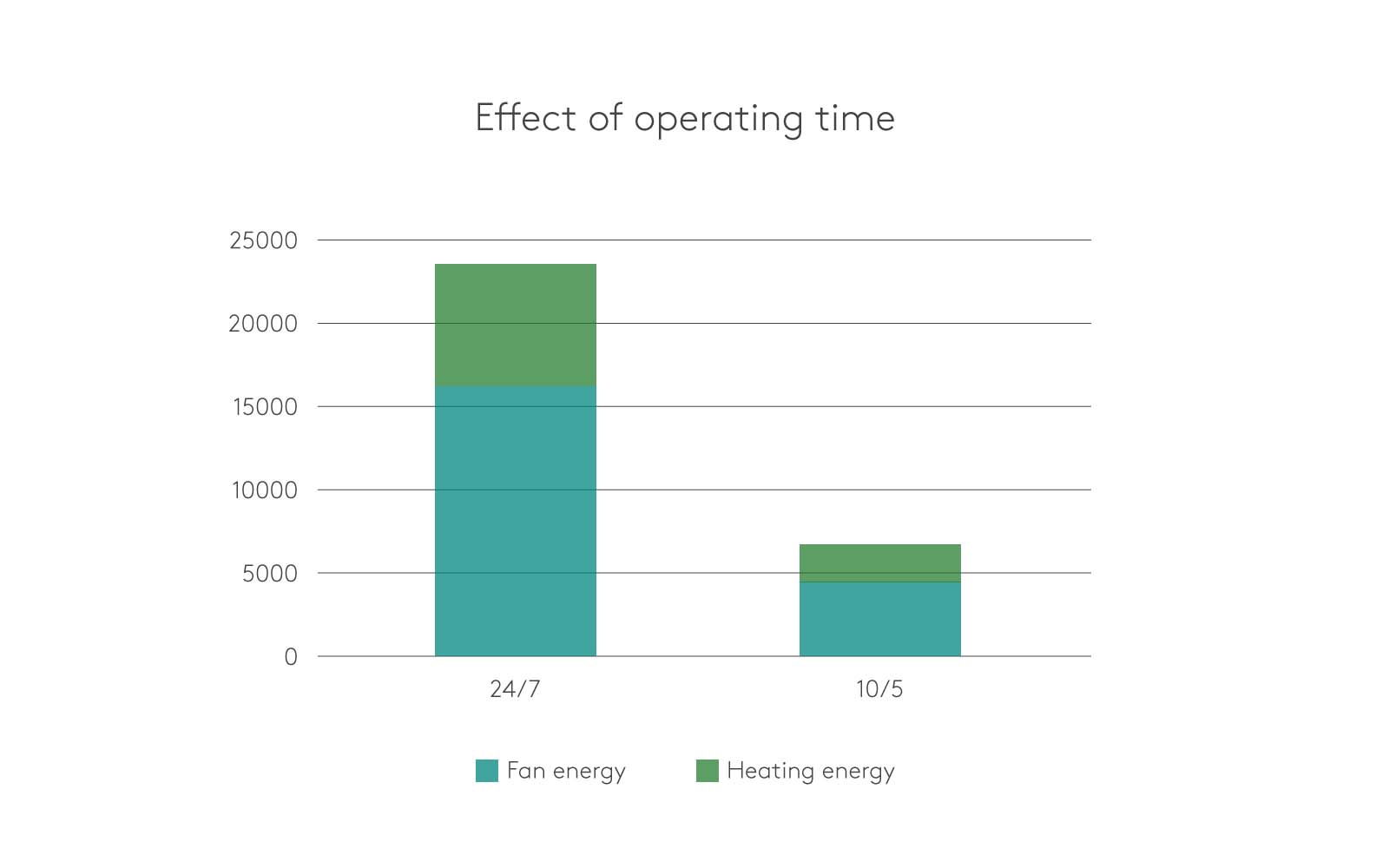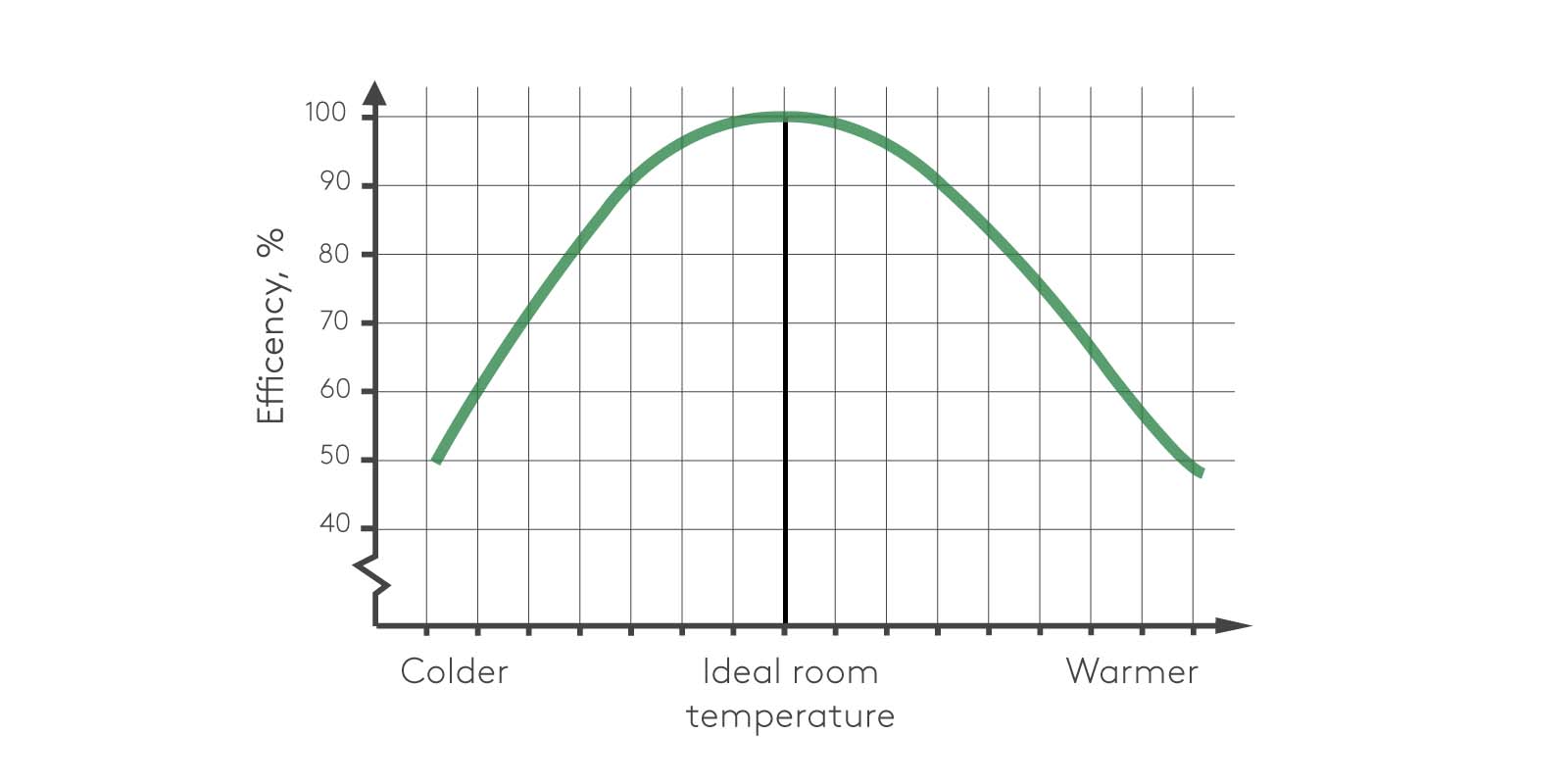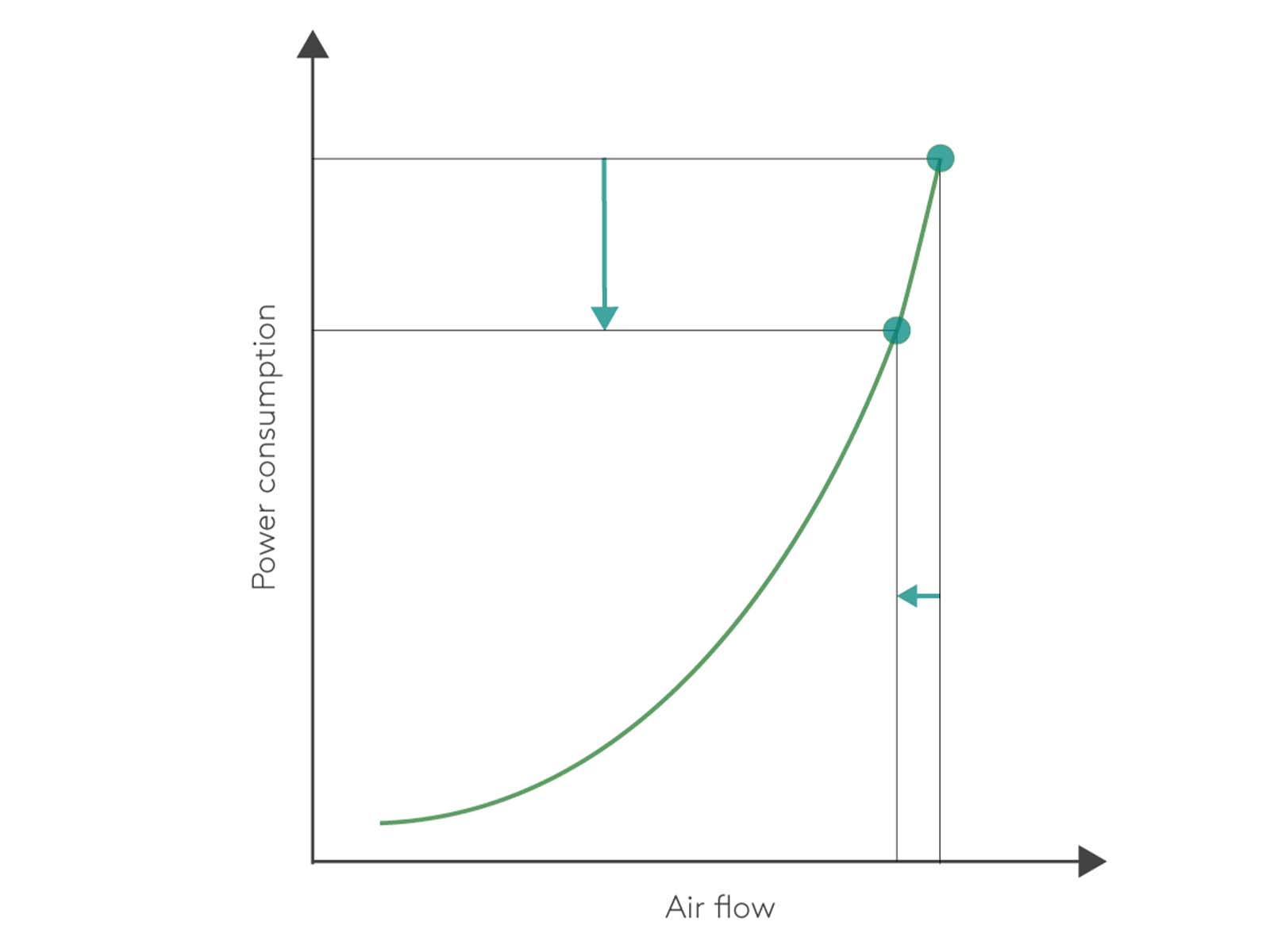As Google searches regarding energy-savings have somewhat skyrocketed lately, it is reasonable to think that the following search has been made more than just a few times: how to save energy + AHU?
Don’t we just love a list of recommendations when we find ourselves in a situation of intricate decisions? The fear is that the response to the above is brief and leads to hasty decisions which neglects the unwelcomed consequences. We will therefore share our knowledge and a list of useful tips for increased energy-efficiency of our air handling unit.
Basic facts worth knowing beforehand
We spend about 90% of our lives indoors. By the time we are 78 we have spent about 70 years inside. Knowing that, it seems nearly naïve not to care for the indoor climate in the places we spend time. If we also know that we are 16% more productive in a satisfying work environment, that our quality of sleep is dependent on a comfortable indoor temperature and that our ability to think strategically is reliant on good air quality, it seems undiscerning not to require a perfect indoor climate in all premises where we are expected to perform or rest.
Combining the above with a desire for increased energy-efficiency presents us with a dilemma. Our five tips below aim to ensure an ideal operation of the air handling unit (AHU) in order to achieve an optimal indoor climate and energy consumption.
Operating time
AHU energy consumption is, of course, directly related to operating time. A reduction in operating time will lead to a proportional reduction in energy consumption. An office, for example, might be occupied in a similar way Monday to Friday but is empty at weekends. By shutting down the unit at Saturdays and Sundays a lot of energy is saved. Also, an office is rarely used constantly, 24h a day. As the bar chart shows, energy consumption may be cut by 2/3 when using the calendar function to reduce operation from 24/7 to 10/5. If a calendar function is already set up, make sure the operating times are realistic from both an air quality and an energy perspective. Finally, don’t forget to reduce or turn off the AHU during holiday seasons, bank holidays and vacation periods.
Temperature
In the northern parts of the world we are now entering the “heating” season. A ventilation unit with high efficiency heat recovery is already energy optimised. However, as the supply air temperature should be a little under room air temperature for good air distribution, a couple of degrees lower targeted indoor temperature can save a noticeable amount of energy without a notable impact on comfort or productivity.
So, when considering lowering the room temperature, remember to adjust the supply air temperature accordingly.

Air flow
Air quality has a fundamental impact on comfort, productivity and health. Inadequate outdoor air supply may consequently lead to discomfort, lowered productivity or health issues. On the other hand, excessive air flows might cause draught and pointless energy consumption. In fact, 20% of the energy cost can be saved by reducing the airflow by 10%, so adjust the air flow to the actual need.
Demand-controlled operation
The energy consumption of a fan increases exponentially with increasing air flow. We therefore recommend a demand-controlled operation of the ventilation unit. It then meets the exact needs at all times and eliminates periods when a room is ventilated, heated or cooled without a demand. The control functionality of our Swegon GOLD air handling units and our Swegon WISE system for a demand-controlled indoor climate allow for even the smallest adjustments which make significant differences in energy consumption. Illustrated below
Maintenance
Finally, and it may sound simple and nearly obvious, but even the most energy-efficient and well-installed air handling unit needs a bit of appreciation. To change filters in time is perhaps the easiest energy-save we can recommend. A unit with aged and clogged filters runs it fans harder and harder to compensate for the increasing pressure drop, with an awful, and maybe unexpected, energy consumption as a consequence. Regular or required filter changes are also essential to be able to ensure a comfortable and productive indoor climate.
For further information and recommendations visit our website and read about our GOLD air handling units, our Swegon WISE system and our accomplishments with in the field of sustainability.

























.jpg?width=75&name=Image%20(5).jpg)








.jpg?width=75&name=magnus%20andersson_550x550%20(1).jpg)











.jpg?width=75&name=0%20(1).jpg)





-4.png?width=75&name=MicrosoftTeams-image%20(3)-4.png)















